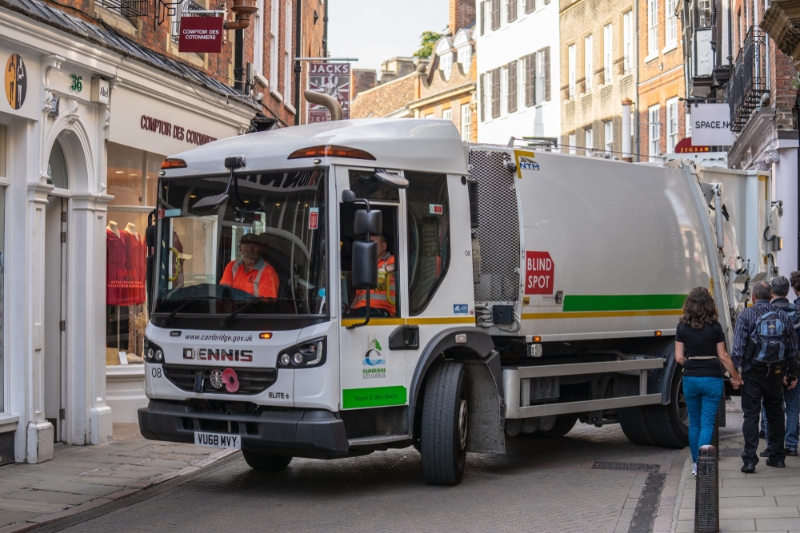Abi Ademiluyi, APSE’s principal advisor for the South of England, and Rob Bailey, APSE’s principal advisor for fleet and transport, discuss fleet decarbonisation.


With over 300 local councils declaring a climate emergency it is unsurprising that many are now turning their attention to practical actions to decarbonise both council services and their local area.
Whilst waste is one of the lower emitting areas for carbon, with the Committee on Climate Change Local Authority report in December 2020 identifying just 5% of greenhouse gas emissions from waste, it is the transport used within the waste sector, where a real difference could be made. Surface transport is amongst the highest emitting sector in the UK economy, making up 22% of UK emissions in 2019. It stands to reason that councils can’t ignore the fleet used in refuse and recycling services.
However, the cost of change, and emerging technologies in the RCV sector, creates challenges for councils. If they take the plunge on one particular technology, will this be quickly obsolete when other options emerge? Equally for some to transition they may also need to consider changing the infrastructure or location of their depots.
With this in mind, APSE has decided to embark on a piece of research with its member councils across the UK to explore barriers to, and opportunities for, greening the RCV fleet. With the cost of a new RCV running at between £150,000 to over £300,000, it is not a decision that councils can afford to get wrong.
It is in this context that our research took place. Our first step was to set up a broad reaching survey across UK councils about greening their refuse fleet. Amongst the initial 83 survey respondents from local council refuse services, 91.5% say that they have been actively involved in their council’s climate emergency discussions at a departmental or corporate level. However, whilst 35% state they have a strategy to transition their fleet, near to 47% have yet to firm up a plan. More encouragingly, nearly 27% have trialled, purchased, leased or hired an electric RCV, and near to 25% have done the same with a biofuel/HVO vehicle.
When it comes to the current green fleet in operation, the vast majority of respondents at 44.5% say that less than 5% of their council fleet is classed as ‘green’ and a further 22% say that they have less than 10% green fleet. Near to 28% suggest that the cost of change is the biggest barrier to transitioning to a green fleet with lack of infrastructure capacity such as charging spaces cited by 25.3% of councils. A staggering 93% say that they have yet to use modelling software to explore and manipulate options for changes such as cost, replacement cycles and maintenance of a new green fleet. Nonetheless, 77% suggest that they will be reviewing their fleet options within the next three years – with more than half reporting that they will be doing so within the next 12 months.
Where does this leave us? It is clear that there are some huge issues in transitioning a heavy traditional RCV fleet to something which helps to reduce the carbon footprint of council services. Moreover, waste services may not be the biggest ‘carbon polluter’ but they are still governed by stringent targets on waste reduction, reducing waste to landfill, increasing recycling and contributing towards a circular economy. Waste is at the heart of how we use scarce resources so it would be obtuse to continue to deliver its valuable contribution to addressing climate change through an older polluting fleet. It must be fit for purpose, not only in its action as a service but in delivering that service in a way which minimises its environmental impact.
APSE is planning a series of roundtables to further explore this issue with member councils with a view to producing a short research paper in the coming months. It may well be that this raises some more fundamental issues, such as whether door-to-door waste collections are the most efficient and environmentally friendly way forward. Indeed, work is already on-going with some of our member councils on underground refuse systems, which rely less on routine collections and more on the use of smarter technologies with less vehicles needed overall to empty the underground containers, with integrated recycling.
There are big challenges and big questions – and no time to waste in getting the answers!